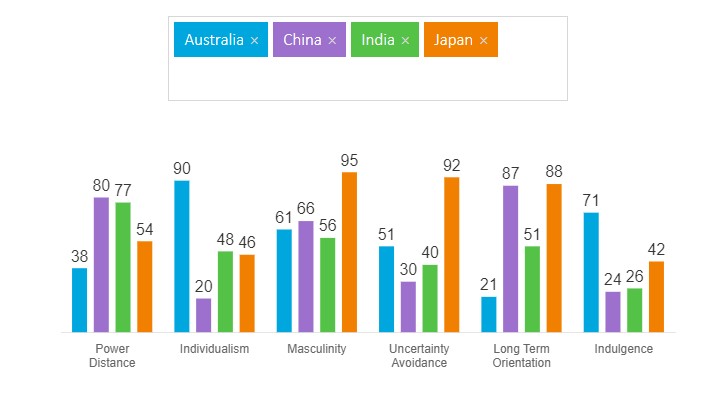How do you negotiate when yes means no, or no means 'let's talk more'? Even small cultural differences can create big drama for businesses trying to go global.
Michael Carter, manager of CCIWA's International Trade and Investment Centre, says considering other cultures’ business communication styles and customs from the beginning of your export or import journey can be the difference between success and failure.

About to go global? Get ready to rethink your business communication style: the same qualities that made you a success in Australia can deliver a critical blow in your attempts to access overseas markets.
It's hard to understate the differences in approach across different cultures. Even a superficial review of some of WA's most important export relationships reveals some of the fundamental differences in communication styles.
Business in China is based on a network of personal relationships, while signed contracts are not always binding. Key to successful relationship building is an understanding of "face". You can give "face" by demonstrating self-control, personal integrity and professionalism, showing you understand Chinese culture, and by giving gifts.
Be warned: gift-giving can be fraught with complications. It may be viewed as bribery in some situations, although almost compulsory in others, with the recipient obliged to "reject" the offered gift three times before being accepted.
Building relationships

In India, saying "no" may be a no-no: it is considered a very harsh word, and you will want to find an excuse rather than reject an offer outright. If someone says they "will try", it's probably a no.
If you're talking to someone it is respectful to use their professional title. Use your right hand when shaking hands, but avoid touching the opposite sex (the traditional namaste greeting comes in handy in these situations.). You don't refuse an offered drink, you must deploy your best manners, and you can anticipate some delays or lateness.
But please don't be late in Japan. Being on time is being late. Always be early.
Your relationship with your buyers or suppliers must be at the core of your plan and strategy in these markets. Learning more about these explicit differences will help you avoid short-term embarrassment, but brokering sustainable business relationships demands more. Understanding implicit cultural issues will allow you to navigate issues more responsively as they arise.
The cultural onion

There are different approaches to understanding cultures. One is the onion metaphor of culture.
On the surface, we see the observable differences in food, art, fashion, architecture, and behaviours. In the middle, we see social norms and attitudes and shared ideas of good and bad. These are based on the culture’s deeper value system.
If, for instance, you understand that there is a greater value placed on social cohesion in Japan, it seems to make intuitive sense that you are more cautious about communicating via the appropriate hierarchy within an organisation.
Culture's 'six dimensions'
Geert Hofstede identified "six dimensions of national culture" — power distance, individualism/collectivism, masculinity/femininity, uncertainty avoidance, indulgence/self-restraint, and long-term orientation — as a lens through which to view differences in culture.
These dimensions are then ranked on a scale from 0 to 100. While there are obvious limitations to this type of model, it’s interesting to review those countries previously mentioned against Australian culture.

A comparison of cultural traits between Australia and its major Asian trading partners.
However, models and book learning can only get you so far. There are agents who have expertise in these types of cross-cultural differences and can also run research and market testing for you.
We provide these services at ITIC.
You need more than a great product for international success. We have two ears, two eyes and only one mouth for a reason: the most important quality we look for in our staff, and the best general advice I could give, is to approach cross-cultural learning with curiosity and goodwill.
At the end of the day international business is about creating partnerships and relationships to create a rapport and build trust. This is really important when relying on overseas buyers or importers to represent your product brand or services.
The People to People engagement is everything.
ITIC is a TradeStart partner of the Australian Trade Commission in WA, providing our clients with a direct link to Austrade’s exporter services and access to an extensive overseas network. To discover how we can help your business contact the team at ITIC on (08) 9365 7620 or via [email protected].






